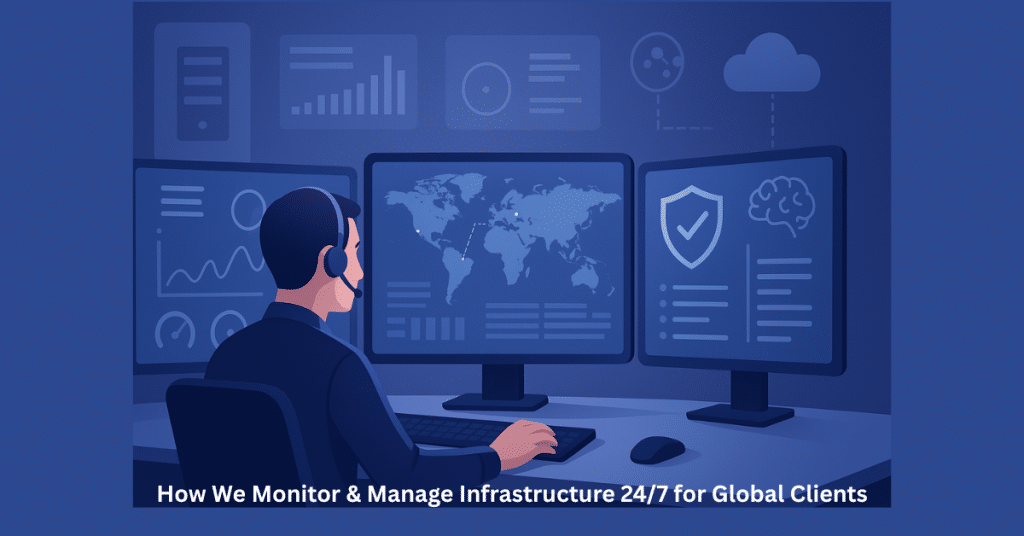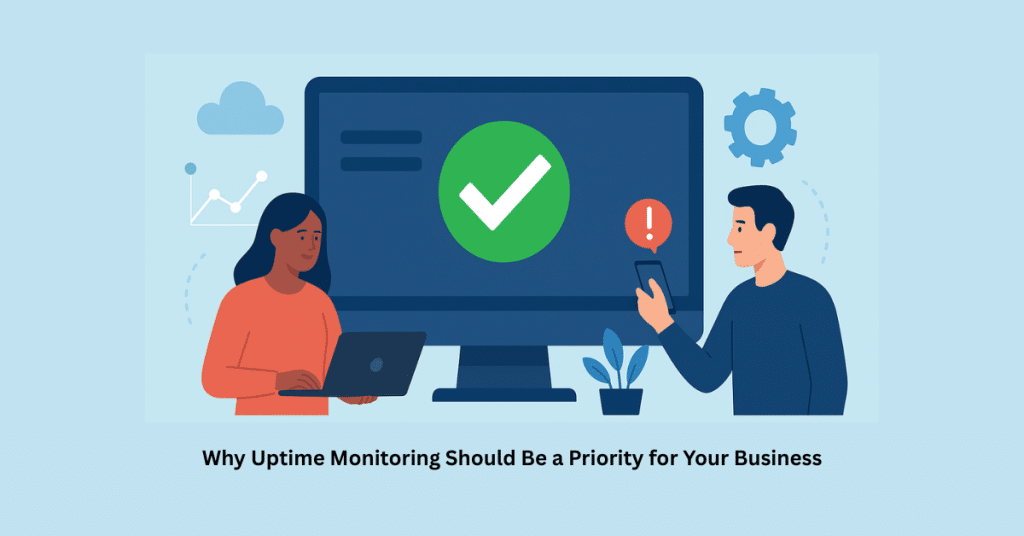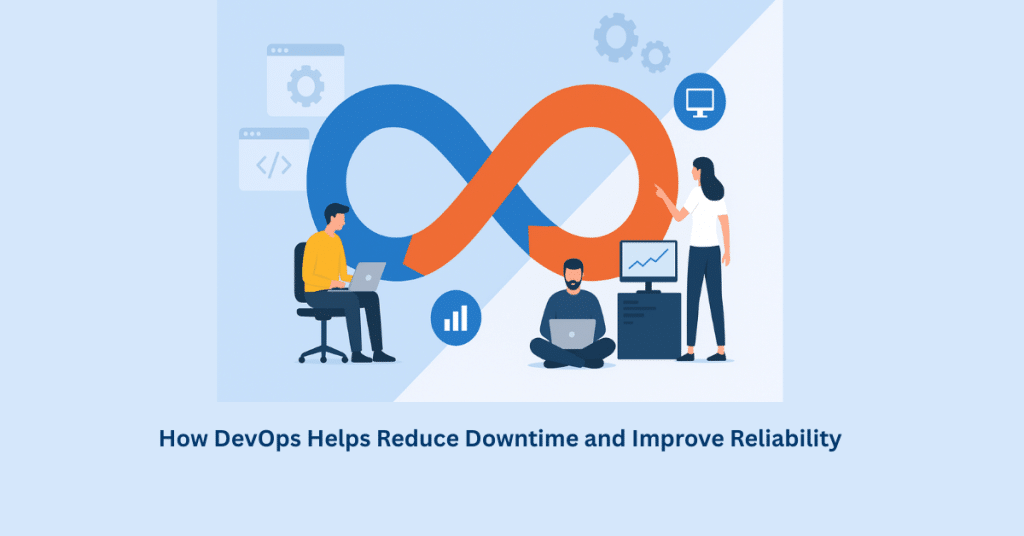Small and medium-sized businesses usually struggle to meet technology demands with limited in-house capabilities. IT managed services provide a common-sense solution with professional expertise, proactive monitoring, and budget-friendly technology management. This blog demystifies the top advantages, ranging from increased security to increased productivity, and how outsourcing IT management can be a growth driver for contemporary businesses.
Introduction
Building a growing business is thrilling, but it can also be demanding.. As organizations grow and customer demands expand, the importance of technology increases more than ever before. Robust systems, secure networks, and optimized workflows are no longer niceties; they’re requirements to remain competitive.
But here’s the catch: most expanding businesses lack the budget, expertise, and time to keep up with complicated IT systems. That’s where IT managed services step in. Rather than doing it all internally, companies can leave it to a single, specialized provider to take care of their IT infrastructure so they can concentrate on what matters most—customers and growing operations.
In this article, we’ll break down the top benefits of choosing IT managed services and why they’re becoming a go-to strategy for ambitious businesses.
1. Cost Savings and Predictable Spending
One of the biggest advantages of IT managed services is cost efficiency. Instead of hiring a full in-house IT team—which can be expensive in terms of salaries, training, and benefits—businesses pay a fixed monthly fee for expert support.
This subscription-based model makes IT expenses predictable. You know exactly what you’re paying for, which makes budgeting easier and eliminates unexpected costs from system failures or emergency fixes. For growing businesses where every dollar counts, predictable spending can free up resources for other strategic investments.
2. Access to Professional Expertise
Technology is ever-changing. New technology, threats, and regulatory requirements emerge annually, posing a challenge to internal staff keeping pace. With IT managed services, companies have instant access to a team of technology experts who eat, sleep, and breathe technology.
These experts are qualified to do it all from network security to cloud migration. But more importantly, they impart best practice and industry expertise that would otherwise take years to develop internally. For an expanding business, this access puts them on equal footing with larger firms that have the larger IT staff.
3. Advanced Security and Compliance
Cybersecurity is among the largest worries for contemporary enterprises. Small and medium enterprises tend to be the targets of choice for attackers because they’re perceived as an easier target. A single hack can result in monetary loss, reputational harm, and even regulatory fines.
IT managed services companies install robust security controls, including:
- Real-time monitoring for suspicious behavior
- Scheduled software upgrades and patching
- Data backup and disaster recovery planning
- Checks for industry regulations for compliance
By leaving security in the hands of experts, companies minimize their exposure to risk and enjoy the assurance that their data and systems are safeguarded.
4. Enhanced Productivity and Efficiency
When employees experience technical problems—slow systems, downtime, or connectivity issues—it has a direct effect on productivity. Rather than concentrate on their work, staff spend time debugging or waiting for assistance.
With IT managed services, problems get solved instantly, and many times before employees even realize there was an issue. Providers utilize proactive monitoring software that catches and corrects potential issues early on. This reduces downtime and keeps teams running without a hitch.
The outcome? Employees can concentrate on their work without IT hassles, maximizing overall efficiency and morale.
5. Scalability for Business Growth
As each expanding business will eventually reach a juncture where its current IT infrastructure can no longer suffice, hiring new staff, offices, or cyber tools tend to demand infrastructure adaptation.
IT managed services greatly simplify scaling. Providers create elastic solutions capable of growing alongside your business. Whether increasing cloud storage space, upgrading network capacity, or accommodating remote workers, scalability is part of the service model.
Instead of scrambling to keep up with growth, you’ll always have IT systems that match your business needs.
6. Proactive Problem-Solving
Traditional IT support models work on a break-fix basis—you call for help only when something goes wrong. The downside? By the time the issue is fixed, downtime and damage have already occurred.
IT managed services are proactive. Providers continuously watch over systems 24/7 and fix problems before they are ever a problem. That results in fewer interruptions, less downtime, and a more seamless experience for employees and customers.
Imagine preventive care for your IT: ailments are addressed early on, before they’re emergencies.
7. Improved Concentration on Core Business Objectives
IT is crucial, but it is not your business. Valuable time spent handling servers, resolving software issues, or agonizing about security can take focus away from growth drivers such as customer support, sales, and innovation.
With managed IT services outsourcing, executives and staff can shift their effort to strategic initiatives. The IT provider works on the technical aspect, allowing firms to concentrate on areas where they excel.
8. Access to the Latest Technology
Technology is ever-evolving, and system upgrades can be expensive and complicated. Businesses gain access to leading-edge technologies through IT managed services providers without having to deal with maintaining them themselves.
These range from cloud-based solutions and collaboration tools to security systems and automation technology. Providers also help businesses select the correct tools for their particular requirements—making sure investments are effective as well as future-proof.
9. Reliable Data Backup and Disaster Recovery
Data is the lifeblood of any business, and its loss can be crippling. Hardware malfunctions, cyberattacks, or even natural calamities can jeopardize precious data.
With IT managed services, companies enjoy regular backups of data and sound disaster recovery strategies. This will ensure that in the event of a failure, operations can get back to normal at the blink of an eye with minimal data loss.
It’s not merely about storing files; it’s about protecting business continuity.
10. Competitive Advantage
Last, integrating with an IT managed services company provides expanding companies a competitive advantage. Trustworthy systems, robust security, and the ability to tap into wise advice enable smaller firms to handle business with the same level of sophistication as bigger companies—without the expense.
In competitive markets, being capable of providing rapid, secure, and stable services can be the difference between gaining or losing customers.
Conclusion
Technology ought to be a source of growth, not an endless headache. For expanding companies, IT managed services offer a better means of managing systems, improving security, and expanding operations without incurring an enormous financial burden.
By joining forces with the proper provider, organizations are introduced to expert talent, fixed budgets, and proactive care that keeps them one step ahead of challenges. Rather than trying to keep pace with technology, they can concentrate on what matters most—building relationships, delivering customer service, and getting stronger each day.
In today’s digital-first environment, IT managed services are no longer an option—they’re a strategic imperative.



